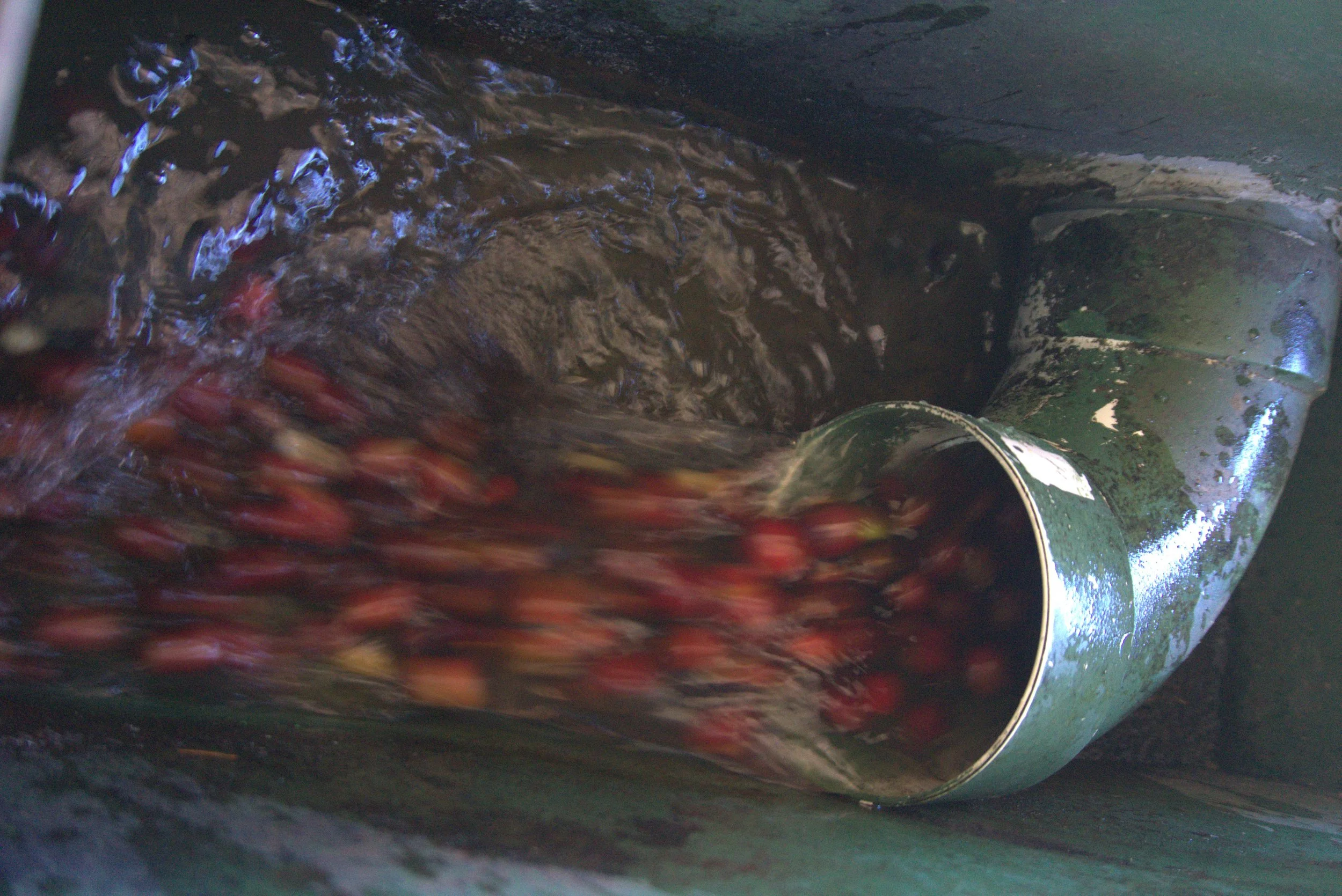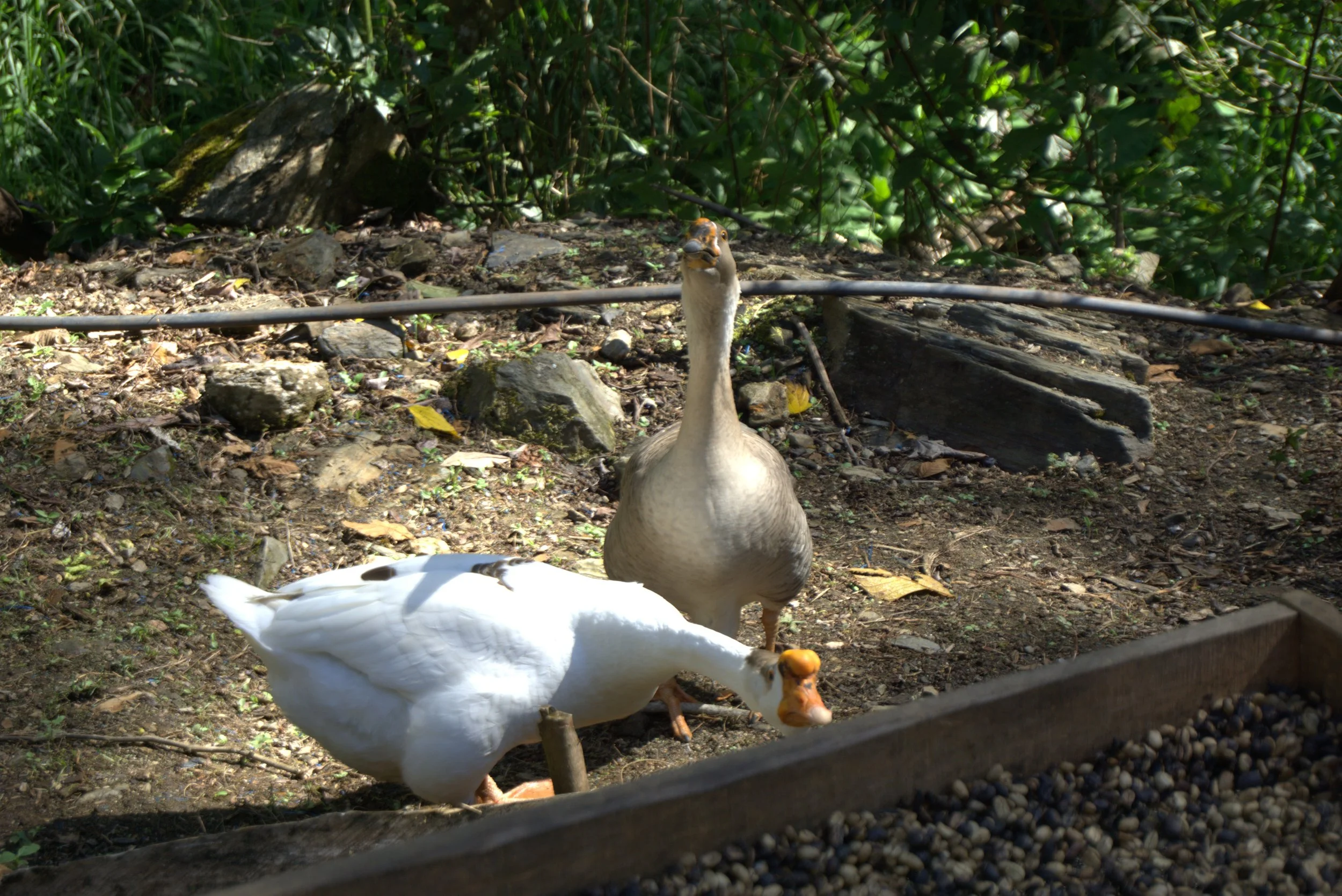El
paraiso
SINGLE FARM
〰️
SINGLE FARM 〰️
Producer Hipólito Acuña
Farme El Paraiso
Region Nueva Segovia
Altitude 1500-1650 masl
Process FW,
Carbonic maceration natural
Species Arabica
Varieties lot 1: Catuai FW
lot 2 : Java CMN
lot 3: Gesha CMN
Harvest January - April
El PARAISO
Tucked away in the lush, mountainous landscape straddling the border between Honduras and Nicaragua lies El Paraíso, a ten-hectare coffee farm nestled in the municipality of Ocotal, Nueva Segovia. True to its name – "The Paradise" – the farm is enveloped by exuberant vegetation and a thriving canopy of trees, lending it a tranquil, almost otherworldly charm.
El Paraíso is no ordinary farm. It cultivates a variety of Arabica varieties amid a rich tapestry of native tree species, practising agroforestry – a method where coffee plants grow beneath a dense, multi-layered canopy of trees of various ages. Such dedication to quality has earned El Paraíso numerous accolades, including awards at local competitions and multiple honours at the prestigious Cup of Excellence.
At the heart of this transformation is Hipólito Acuña Morales, a young, forward-thinking farmer and proud representative of a new generation of coffee producers. Taking over the family estate in the early 2010s, Hipólito set about shifting the farm's focus towards high-quality, speciality coffee. Alongside the traditional Catuai, he introduced renowned varietals such as Gesha, Java, and Maragogype, turning the farm into a veritable botanical garden of coffee.
A true entrepreneur, he also owns a building materials shop in the nearby village — a sign of his strong community ties and enterprising spirit.
The coffee cherries are harvested by hand at peak ripeness before being transported to the Bridazul beneficio (processing station). There, they undergo various post-harvest processes, including the classic washed method as well as carbonic maceration, depending on the specific lot.
El Paraíso is more than a farm — it's a vision for what coffee cultivation can be: sustainable, innovative, and deeply rooted in its natural and cultural surroundings.
PROCESSING
Lot 1: Catuai Washed
Following harvest, the Catuai cherries are pulped and washed directly on the farm. El Paraíso is equipped with a modern and efficient washing station, allowing for precise processing of all washed lots.
The initial step involves floatation, where floaters and external materials are removed by soaking the cherries in water. The coffee is then fermented in tanks for 24 to 48 hours, a process that helps dissolve the mucilage surrounding the beans and initiates a light fermentation.
After a brief pre-drying phase, the coffee is transferred to the patios at Bridazul for its final drying. Importantly, the beans do not come into direct contact with concrete; instead, they rest on polypropylene lining, which allow for more even heat distribution and protect the beans from dust contamination.
Final pre-export sorting is carried out at Bridazul, ensuring only the highest quality beans are selected.
Lots 2 & 3: Carbonic Maceration
Borrowed from the world of winemaking, carbonic maceration enhances the coffee’s fruit-forward characteristics, while adding body, complexity, and depth to the cup.
After floaters are removed through floatation, the selected cherries are transported from the farm to the Bridazul processing station. Fermentation takes place in sealed tanks, housed in a temperature-controlled environment kept below 20°C. Cooler conditions are essential to prevent the development of undesirable bacteria and the production of off-flavours such as excessive alcohol.
Within approximately 12 hours, the cherries begin to naturally release carbon dioxide, which gradually displaces all oxygen inside the tank via a one-way valve. The resulting anaerobic environment triggers fermentation from the inside out, as opposed to traditional fermentation methods where yeasts or additives influence the process from the outside in.
This stage lasts between two to four days, depending on the lot, until the cherries reach a gelatinous, richly textured state.
Once removed from the tanks, the cherries are laid out on shaded African-style raised beds, where they dry slowly for 15 to 20 days. When their moisture content reaches the ideal range of 11–12%, the cherries are pulped and stored in parchment in preparation for export.
bridazul PROJECT
Founded in 2019 by Claudia Lovo, Bridazul is a holistic project designed to forge sustainable connections between producers and consumers. Its mission is clear: to unite quality, environmental and economic sustainability, and social impact in one cohesive model. Today, Bridazul supports around fifty small and medium-scale producers in the mountainous region of Nueva Segovia, northern Nicaragua.
Claudia, herself a Nicaraguan coffee producer at Finca El Árbol, launched the initiative alongside her business partner Sasa Sestic. The duo were among the first in the region to experiment with carbonic maceration, a now-celebrated fermentation method that made waves in the early 2010s. Their early successes caught the attention of neighbouring farmers, many of whom began knocking on their door for guidance.
What followed was a spirit of transparency, collaboration, and mutual support. Claudia opened up her infrastructure and expertise, enabling fellow producers to craft their own high-quality lots using carbonic maceration – and crucially, connecting them to international markets that value innovation and traceability.
The culmination of this work was the establishment of Bridazul’s full-scale processing station in 2019 – a physical hub where local producers come together not only to process their coffee but also to learn, improve, and grow.
Bridazul offers:
Agronomic support to help farmers maintain healthy, fertile soils,
Training programmes to strengthen production knowledge and techniques,
Market guidance for selling green coffee, and
A guarantee of fair, above-market pricing – ensuring that producers cover their costs and earn a meaningful profit.
Bridazul represents a new chapter in Nicaraguan coffee – one rooted in shared knowledge, long-term sustainability, and dignity for producers.
CUP PROFILE
LOT 1: CATUAI FW
Aromas: praline, chocolate, floral
Flavours: apricot, milk chocolate au lait, black tea, pear
LOT 2: JAVA CMN
Aromas: floral, caramel, stone fruit
Flavours: floral, chocolate, vanilla, earl grey
LOT 1: GESHA MCN
Aromas: floral, bergamote, panella
Flavours: strawberry, rose, cacao, prune










